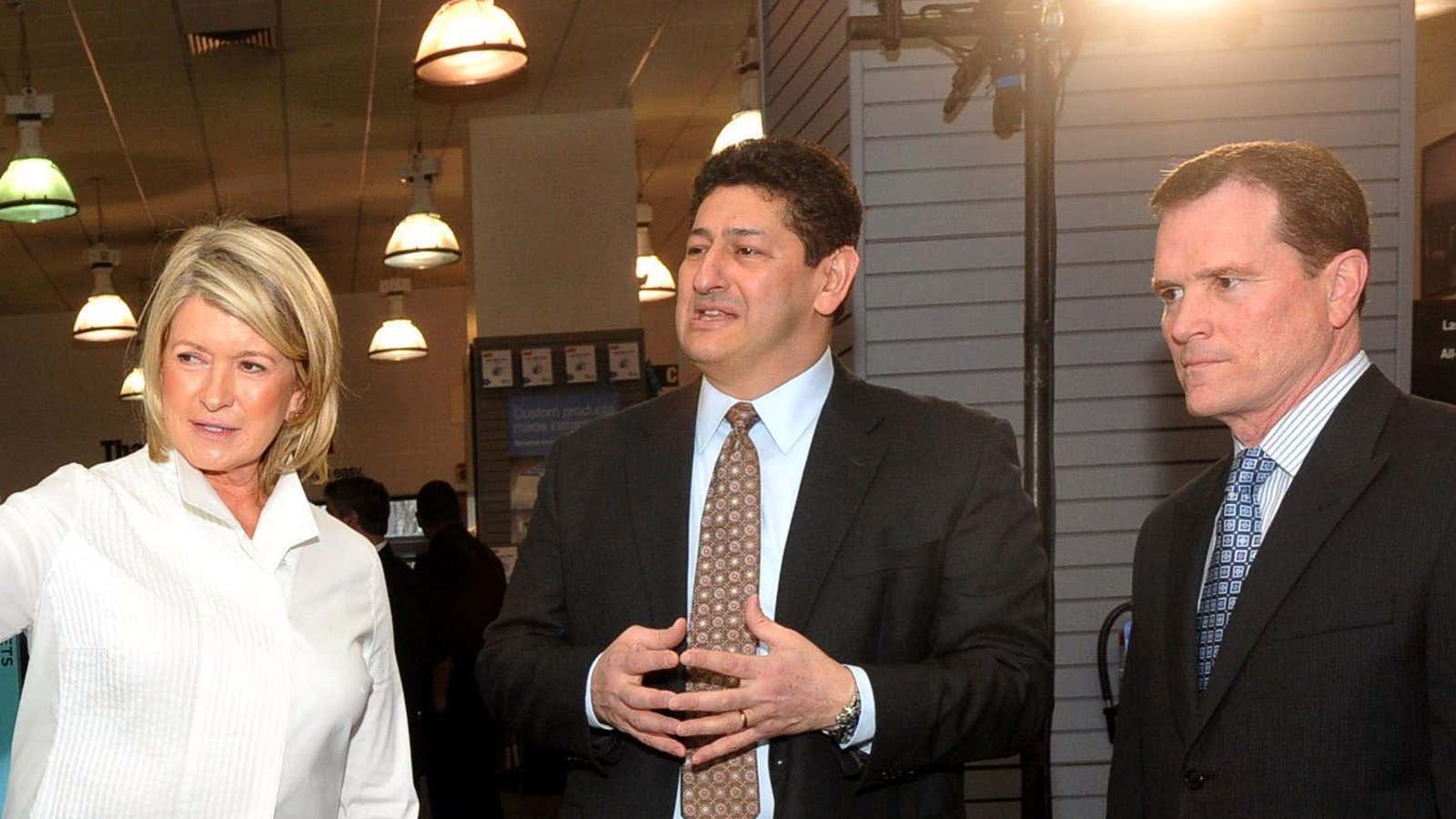At the end of Dirty Dancing, Patrick Swayze returns to the resort that fired him so he can dance with Jennifer Grey in an iconic performance that said, “I’m not going quietly.” Today, Barnes & Noble’s former CEO took the stage for his own final solo.
After fewer than 15 months at the helm of the US bookseller, Demos Parneros was unceremoniously fired as Barnes & Noble’s CEO in July. B&N cited “violations of the Company’s policies,” without specifying further, and did not offer Parneros severance.
On Tuesday (Aug. 28), Parneros punched back, filing a lawsuit against Barnes & Noble that claims he was wrongfully terminated. The suit also accuses B&N executive chairman Len Riggio of being a ”volatile founder who refuses to relinquish control” who engineered Parneros’ firing and defamed him. Parneros is seeking lost severance and damages, among other things.
In a statement, the B&N board defended Riggio, and for the first time provided (albeit limited) details on the circumstances of Parneros’ departure:
The lawsuit filed by Demos Parneros is nothing but an attempt to extort money from the Company by a CEO who was terminated for sexual harassment, bullying behavior and other violations of company policies after being in the role for approximately one year. The allegations contained in the complaint about Len Riggio are replete with lies and mischaracterizations.
Parneros denies the allegations of sexual misconduct and bullying.
By putting his own allegations about Riggio into the public record, Parneros appears to be making an explosive attempt to drag the company’s founder down with him. Riggio already has a reputation in the book industry for being temperamental and unwilling to cede power—he’s been putting off retirement plans since at least 2016, and according to one account, since the 1980s. Parneros further paints a portrait of flailing company leadership, incompetency, and infighting. The suit includes a long list of specific allegations against Riggio, who Parneros describes as a foul-mouthed bully.
Of former B&N CEO Ron Boire, who was also fired after a short tenure, the suit claims:
In meetings, Riggio referred to the CEO who preceded Parneros with terms such as “SOB,” “creep,” “motherfucker,” “slime bag,” and “bad guy.” At a store manager conference, in front of over a thousand people, Riggio not only blamed that CEO for declining sales, but called him a “bad person.”
Of Allen Lindstrom, the company’s CFO, with whom Parneros clashed, the suit says:
Riggio described Lindstrom as an accountant, a “bean counter” who was barely good at that. Riggio complained that Lindstrom was not strategic and was lazy. Riggio also said repeatedly that Lindstrom was “weak,” that he had “no balls,” and that “his wife wears the pants.”
And of an unnamed merchandising vice president:
In numerous meetings, Riggio attacked a VP of Merchandising who had been given additional responsibility. Riggio described her as unqualified, having no taste, being lazy, and having a big ego. In one meeting with Parneros and Lindstrom, Riggio described that VP as a “fat pig” and asked, “How can someone who looks like that have any taste? Just look at her.”
Parneros’ lawyers declined to comment further.
